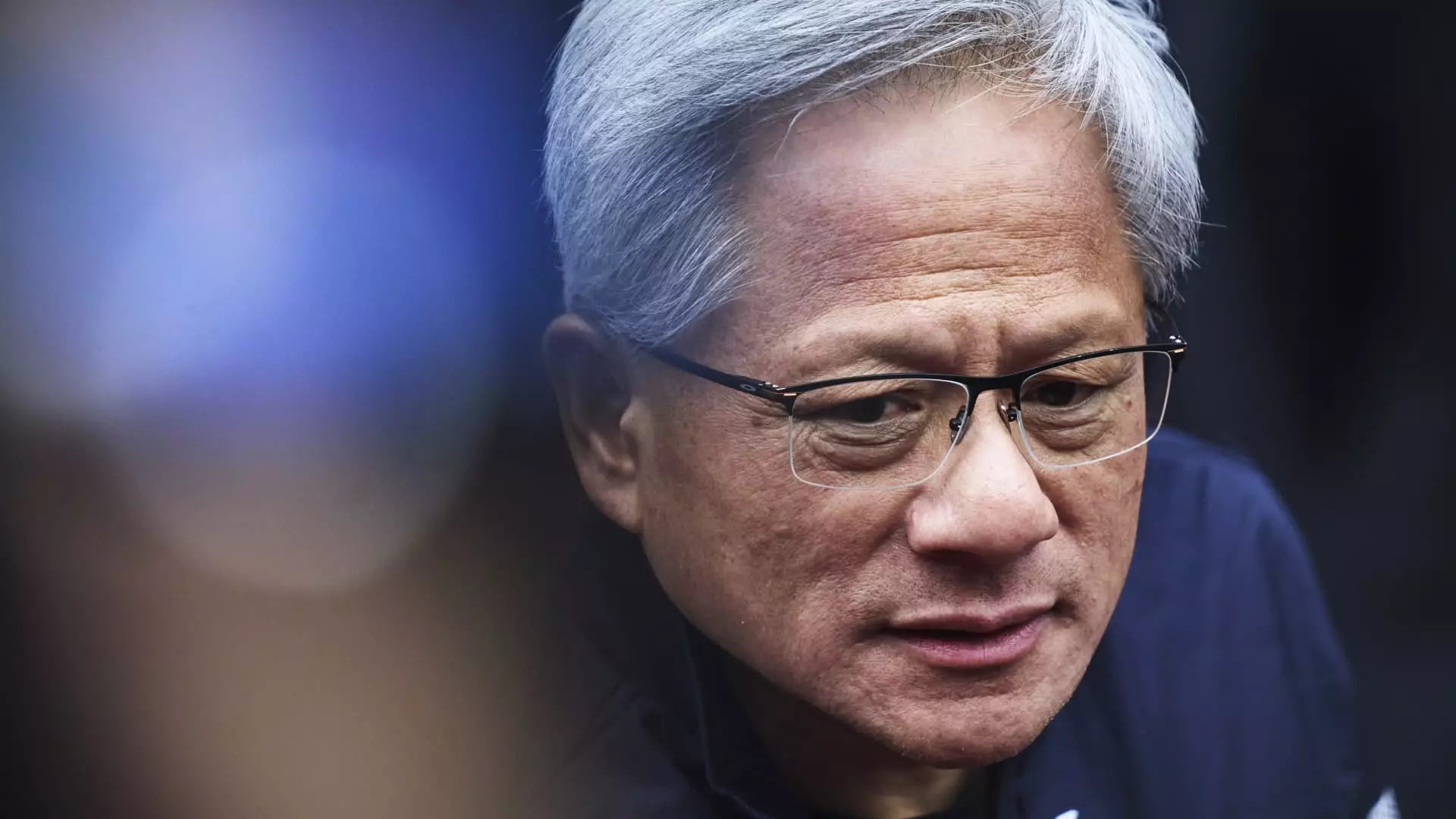Jensen Huang, the CEO of Nvidia, finds himself at a significant crossroads in Washington D.C. as he prepares to meet with President Donald Trump. With Huang’s company being a leader in artificial intelligence (AI) technology and graphics processing units (GPUs), this meeting is poised to address pressing topics surrounding U.S. AI policy, particularly in light of rising competition from China. The convergence of tech and governance has never been more pronounced, and Huang’s discussions with Trump may set the stage for future legislation that could impact not just Nvidia, but the entire technology sector.
The backdrop of this meeting comes with a unique dynamic. This is Trump’s second term, kicking off with a renewed interest from major tech executives who had previously held back. Huang, alongside other industry titans like Jeff Bezos and Sundar Pichai, finds the winds of change blowing favorably for dialogue. The importance of establishing a rapport cannot be overstated; it’s essential for tech leaders to influence policies that will shape their industries.
Key topics on the agenda will almost certainly include the activities of Chinese tech companies, particularly DeepSeek, which has emerged as a significant contender in the AI space. The cyber-competitive landscape between the U.S. and China is fraught with tension, and the regulations surrounding AI technologies are critical. Huang, with his insights as a leading figure in AI advancement, will likely underline the need for policies that protect American intellectual property while fostering an environment where innovation can thrive. Both countries are racing to hone their capabilities in AI, making it essential for the U.S. to maintain its technological supremacy.
The parameters governing the export of AI chips also stand to influence the broader technology ecosystem. Current restrictions inhibit the export of Nvidia’s advanced chips to key markets such as China and Russia, a situation that Huang and Trump are expected to dissect thoroughly. The Biden administration’s recent diffusion rule, which imposes stringent limitations on chip sales, has further complicated matters. The potential for reversing these regulations under Trump’s authority may provide a lifeline, mitigating the impact on U.S. companies while addressing national security concerns.
Chip Production and Economic Growth
Investments in U.S. chip production are another critical focus area. Nvidia, as a leading player in the semiconductor industry, is acutely aware of the competitive pressures stemming from overseas manufacturing, especially in Taiwan where most of their chips are produced. With the Commerce Department looking to revamp the previous administration’s CHIPS Act—a legislation aimed at bolstering American chip manufacturing—Huang’s insights could push for renewed commitments that bring more fabrication and innovation back to U.S. soil.
The revival of chip production not only holds economic implications but involves national sovereignty and security dimensions. As global supply chains have proven vulnerable during crises such as the COVID-19 pandemic, policymakers are eager to ensure that essential technologies remain under domestic control. Huang’s perspective will be invaluable in aligning private sector ambitions with government initiatives, promoting a robust manufacturing environment.
Ultimately, the meeting between Jensen Huang and Donald Trump symbolizes more than just a discussion of immediate policies; it represents a critical junction where commerce, innovation, and governance intersect. As both leaders delve into the complexities surrounding AI and chip production, the outcomes of their talks could resonate through the tech landscape, influencing regulatory approaches and economic supports for years to come.
As we reflect on Huang’s contributions, the characteristics of effective leadership in the tech industry emerge. Navigating the intricacies of policy, aligning with government objectives, and championing innovation in the face of global competition are just a few dimensions of an ever-evolving landscape. The outcome of this meeting will speak volumes about the capacity for collaboration between tech giants and policymakers, shaping a future where the U.S. can confidently lead in the realm of technology while fostering an ecosystem that values creativity and competition.



Leave a Reply